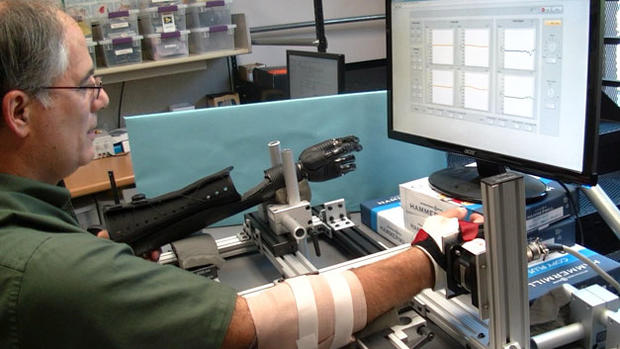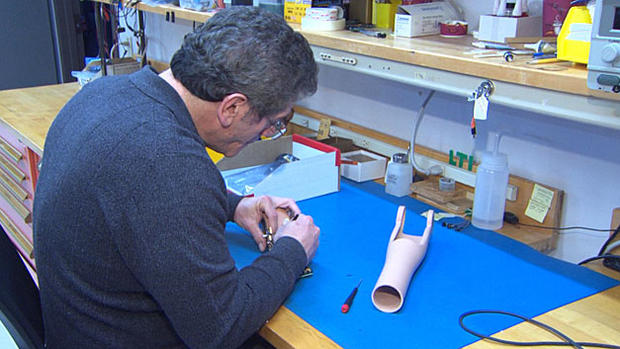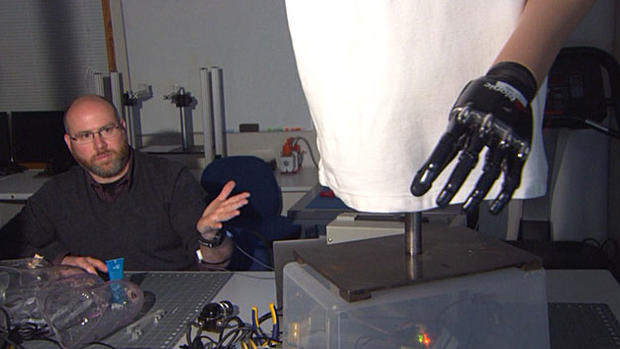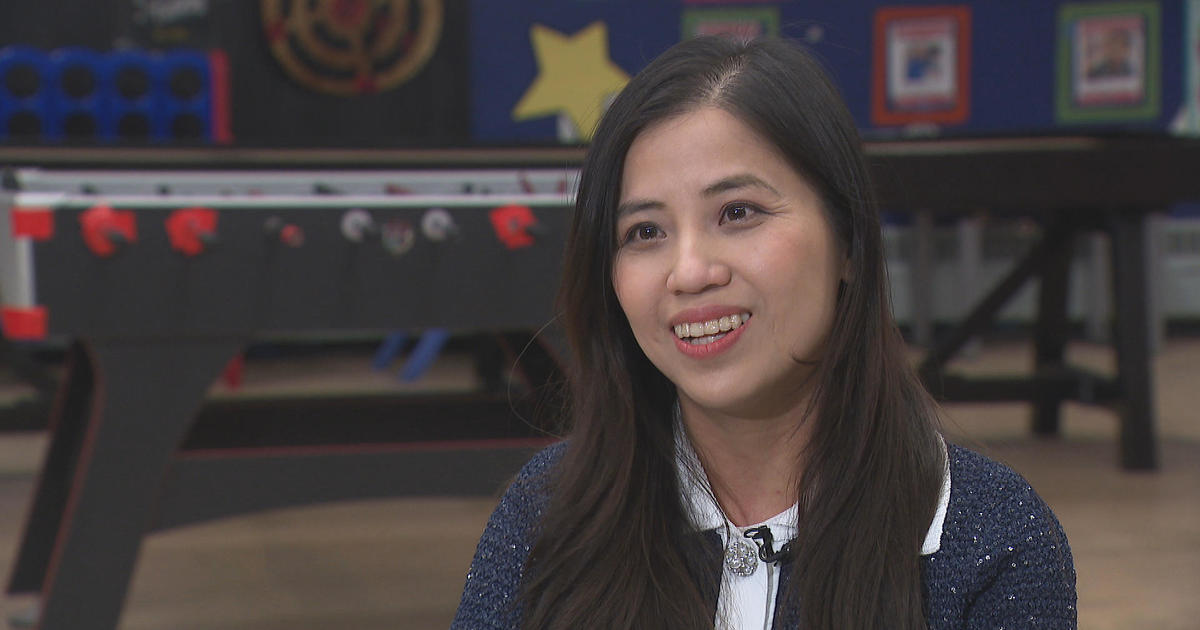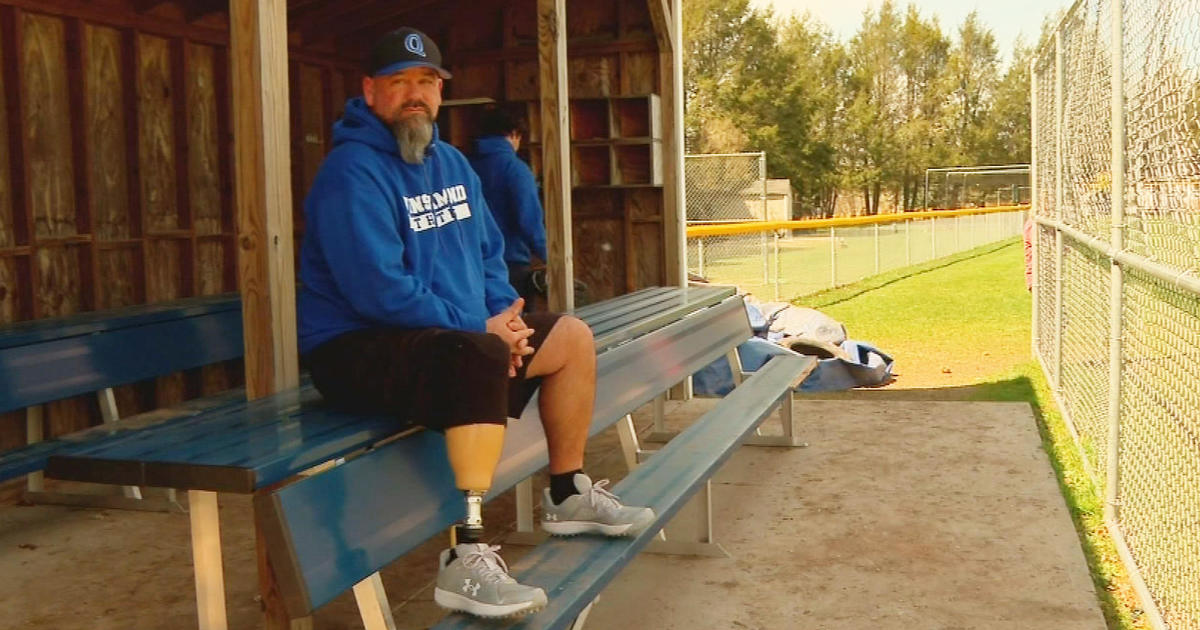Local Researchers Create More Freedom For Amputees With New Prosthetic Devices
BOSTON (CBS) -- Tens of thousands of Americans suffer arm amputations, some on the battlefield, but most due to car accidents and other traumatic injuries. Now, with funding from the National Institutes of Health, local researchers are developing an innovative prosthetic device that could make living with an arm amputation a lot easier.
Losing an arm is life changing, but surprisingly, many do not turn to prosthetic devices for help.
"Half of people with major upper limb amputations don't wear a prosthesis," said Todd Farrell, Ph.D. of Liberating Technologies, Inc. in Holliston, MA. "They found that it's just too cumbersome for the function that it returns."
Therefore, Farrell and his colleague, Ted Clancy, Ph.D., a scientist at Worcester Polytechnic Institute, are developing a hand-wrist prosthesis that will provide "two-degrees of freedom". This would allow people to use the hand and the wrist at the same time.
"When you go to grab a doorknob and open you a door you would grab it with your hand and rotate it at the same time," explained Clancy. "And with the present prosthesis, you can't really do that."
However, you could with this new prototype. It uses sensors that harness the electrical pathways in the muscles, which are still usable even after amputation.
"The brain signals the muscles to act," explained Clancy. "The muscles in the remnant limb contract and give off electrical activity. We use that electrical activity to tell the prosthesis what to do."
Being able to use the hand and wrist independently would provide greater function while also protecting the healthy arm.
"There's a lot of overuse that happens from doing repetitive tasks and if you're not using a prosthesis even to do basic bracing, like holding a jar while trying to open it with your intact hand, that leads to overuse injuries," said Farrell.
Farrell also said the project has been gratifying for both him and Clancy. "The stuff that we work on here today is going to help someone and improve their quality of life and that's something that really helps get us out of bed every day.
Researchers are currently fine-tuning the hand wrist prosthesis with the plan to give it to a handful of people to use at home in one to two years.
